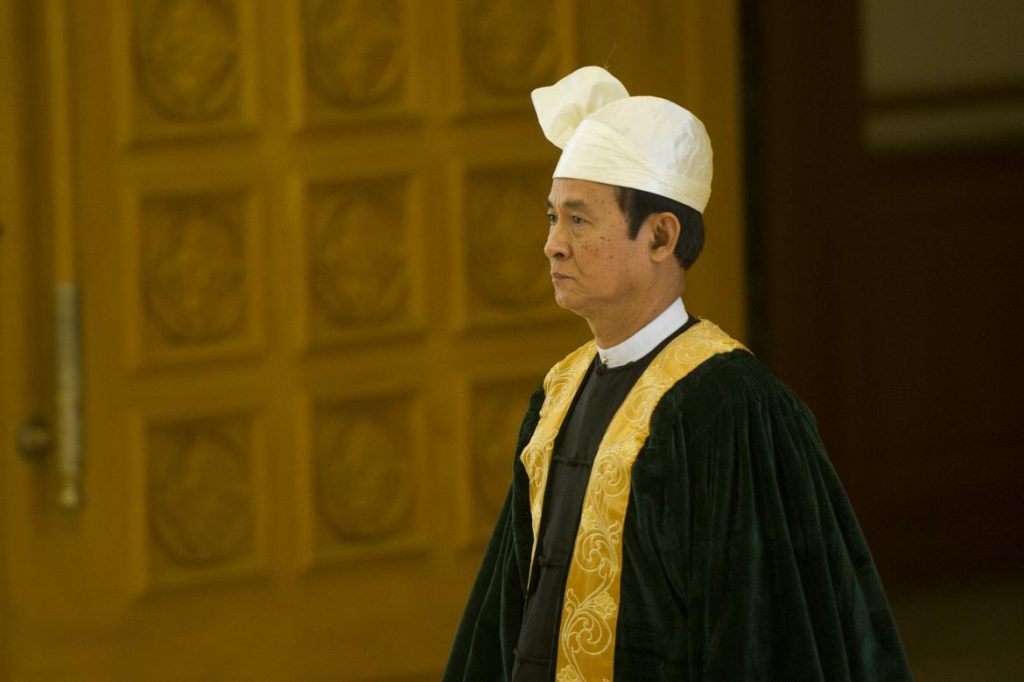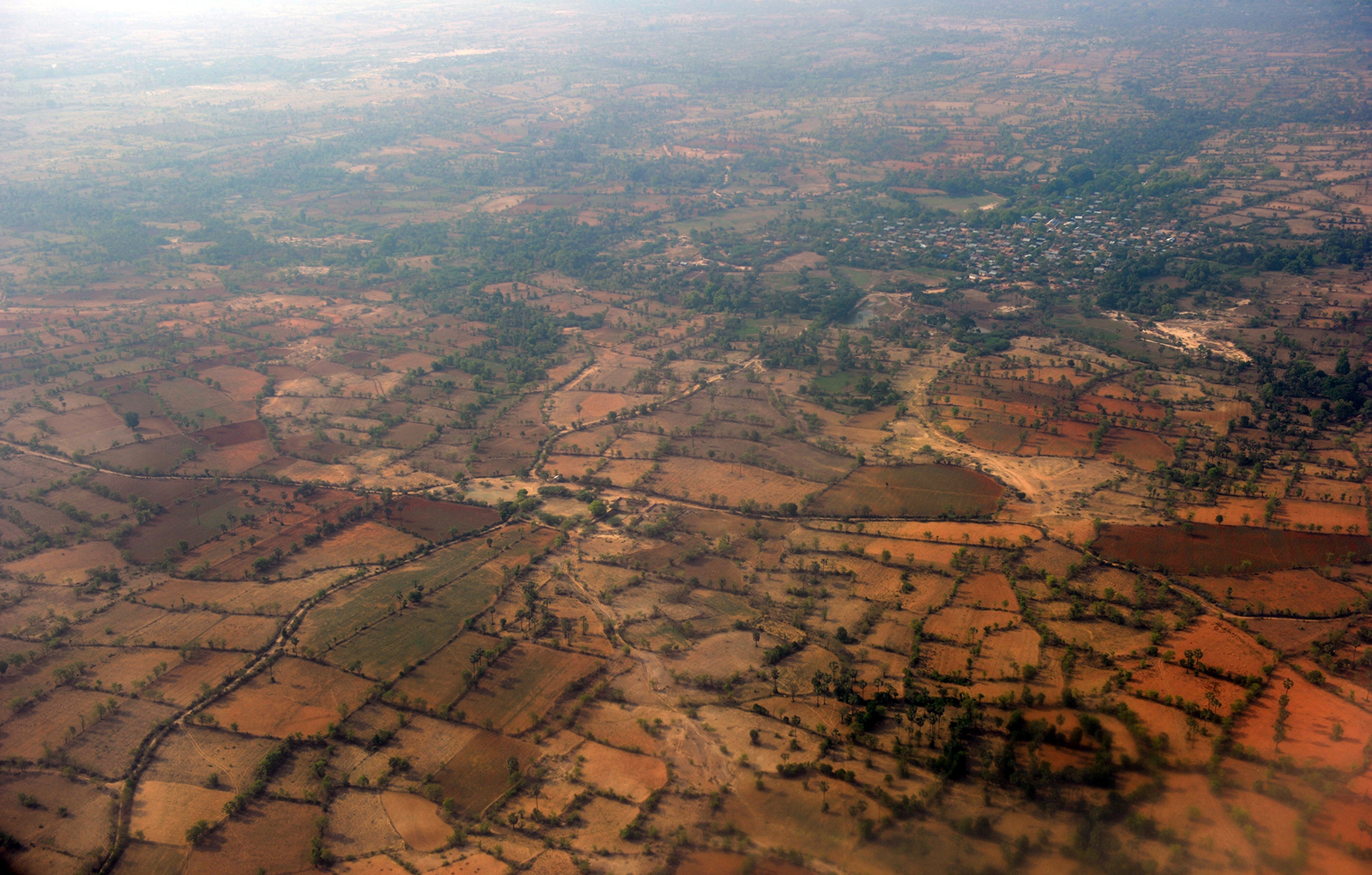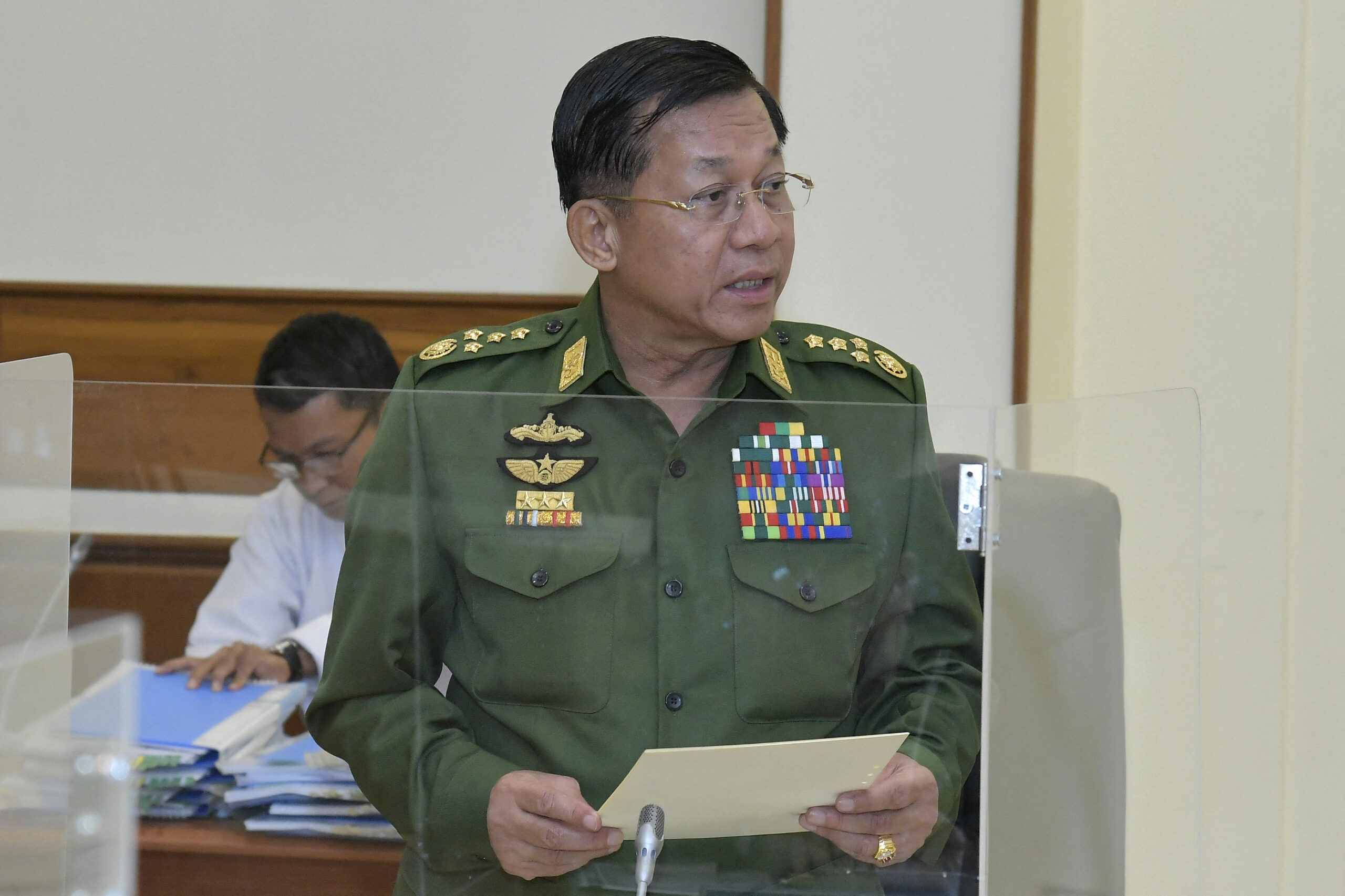By NYAN HLAING LYNN | FRONTIER
NAY PYI TAW — The speaker of the Pyithu Hluttaw has overruled a Supreme Court judge who said that courts should hear criminal cases related to land confiscations before the government has had a chance to settle the original dispute.
Speaker Win Myint said on Wednesday that the legal system should review whether it was appropriate to hear the cases while the government is still examining and trying to resolve the land disputes.
“Those whose land was taken have nothing to eat, but those who have taken the land have more assets than they know what to do with,” Win Myint said. “If their disputes are settled at the court, fair rule of the law will probably not be possible.”
In recent years hundreds of farmers have been found guilty of trespassing after they continued to cultivate land that had been confiscated from them.
Support more independent journalism like this. Sign up to be a Frontier member.
In February, AFP reported that about 350 farmers were on trial for land-related offences in Mandalay Region alone, with the majority of cases brought under the National League for Democracy government. In one case in December 2016, 72 farmers from southern Shan State were sentenced to one-month imprisonment with hard labour.
Win Myint was speaking at the end of a discussion prompted by a questions from lawmaker U Aung Win (National League for Democracy, Hmawbi), who asked the Hluttaw to take “necessary measures relating to the prosecution of farmers whose lands were grabbed” while the government is still investigating the cases.
He said that because in the past land confiscations were not conducted legally, it was not proper for the victims to be prosecuted under the law.
Supreme Court Judge U Myint Aung said the question was “tantamount to an opinion” and he didn’t want to respond.
However, he said it was “impossible” for the judiciary to stop accepting cases while the land disputes are being examined, and that it was “unlikely” ongoing trials would be suspended.
Both Myint Aung and Deputy Minister for Home Affairs Major-General Aung Soe, who also responded to the question, said confiscation had been undertaken by “authorized organizations” using “executive power”.
Aung Soe said the criminal cases related to land disputes were proceeding in accordance with the law and it was up to the respective parties whether they wished to suspend them.
Win Myint said the responses were not grounded in reality.
“Those who confiscated the lands are businessmen or the rich. If you are really saying that the poor who had their land taken should face court with these rich people, you should reconsider your answer,” he said.
Win Myint directed MPs to study how many cases of this nature were taking place in their constituencies, and investigate how they had been handled by the government and judiciary, and then report back to the Pyithu Hluttaw.
Aung Soe and Myint Aung did not respond to Win Myint’s rebuke.
It’s the second time this year that Win Myint and the legislature have become embroiled in conflict with members of the Supreme Court.
In May, Supreme Court Judge U Soe Nyunt averted further confrontation with lawmakers by apologising for his allegation that they had damaged the dignity of the judiciary.
The feud ignited in the Pyithu Hluttaw in early March, when U Tin Htwe (National League for Democracy, Waw) submitted a proposal urging the Supreme Court to reform the “corrupted” judiciary.
While lawmakers approved the motion, Soe Nyunt said the accusation of corruption had been made without any evidence and damaged the dignity of the judicial system.
He also asserted that the proposal was invalid as it did not conform to parliamentary standing orders. Lawmakers later described this claim as “insulting” to both the legislature and speaker Win Myint.
The military has been one of the main beneficiaries of land confiscations, having taken hundreds of thousands of acres from farmers since 1988.
The Land Investigation Committee formed by the previous parliament found that the military, government and private companies confiscated more than 500,000 acres of land between the 1980s and early 2000s, but other estimates put the figure in the millions of acres.







